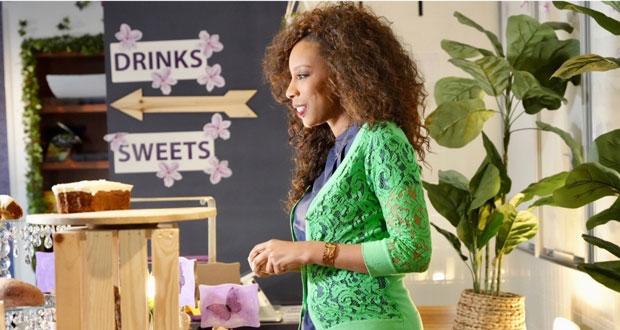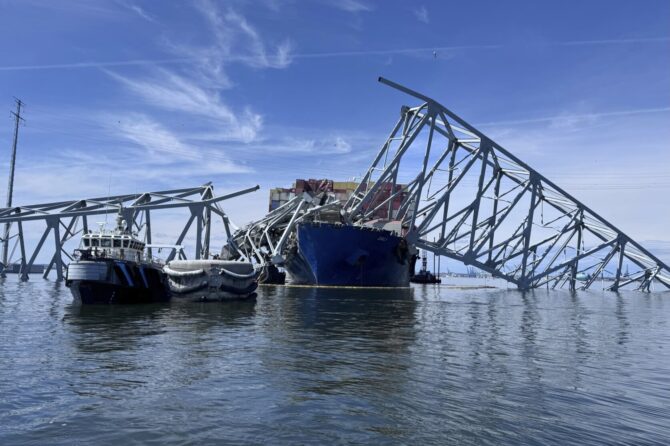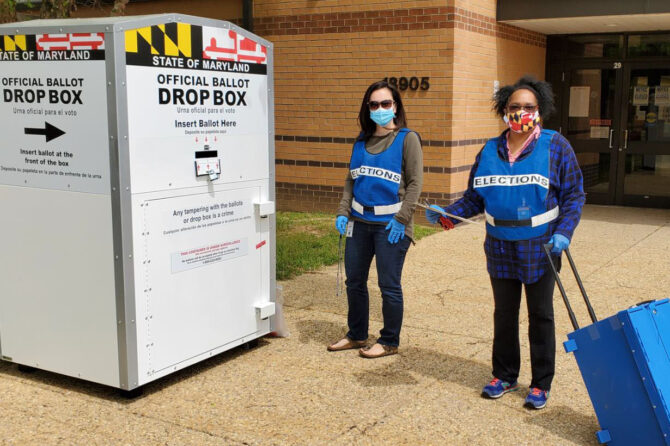THE DAILY RECORD: With the combination of the COVID-19 pandemic, global supply chain issues, the Great Resignation and rising inflation, Maryland’s manufacturing industry has been managing a confluence of complex challenges that will forever transform the ways that business is done.
According to Mike Galiazzo, president of the Regional Manufacturing Institute of Maryland, technology and the transformation to what is known as industry 4.0 offers solutions to many of these issues by reducing the amount of time it takes to get a product to market and offering new and more efficient ways to get work done.
Industry 4.0 refers to the implementation of advanced technologies in manufacturing. These could be things like robots, or “cobots” which work alongside a human worker, to sensors, cloud computing, data, AI, the “Internet of Things,” 3D printing, and other tools and technologies that make the manufacturing process more efficient, faster and cost-effective.
Rapid adoption of new technology can make America more competitive in a global market, said Galiazzo.
“It allows American manufacturing of all sizes to be more efficient and more effective and drastically reduces the time it takes to get the product out the door,” said Galiazzo. “Customer service is improved and the supply chain is greatly enhanced.”
But the cost of implementing these new technologies can be staggering, especially for smaller manufacturers.
“In Maryland, the vast majority of manufacturers are small to medium size, and there are many really small companies with fewer than 50 employees,” said Galiazzo. “4.0 is not just about running out and getting one of these new technologies, it’s about understanding how to plan for the transformation, which is very hard and expensive. Big companies can afford to hire people, but at a small manufacturing company, it’s the owner and that is really, really hard.”
However, small manufacturers also need to focus on the day-to-day and that means concerns about workforce, supply chain and pricing, issues that often compound on each other.

April Richardson, owner of Baked in Baltimore. (Submitted photo)
April Richardson, owner of Baked in Baltimore, famous for the DC Sweet Potato Cake sold in stores, online and on QVC, said that in addition to the rising cost of ingredients due to inflation, hiring is also a problem.
“Workforce issues are a challenge. People see ‘manufacturing’ and they think of manufacturing as it was in the 1960s,” Richardson said. “Even getting people to click the job description is a challenge.
“I sell on QVC, and we can sell a lot of products [in a short timeframe] on air. But then we have no one to make the product. So we end up running the kitchen for 23 hours straight for days on end, and what does this mean? The equipment does not get rest and so it breaks down. How do you pay for that? If we raise prices, even by 15 cents, people are going to notice,” said Richardson.
She has considered how technology could alleviate those issues but said that also means hiring a different caliber of worker, with higher pay. Workers with these skill sets are in short supply as higher education and training programs try to keep up with rapidly changing workforce needs.
“Finding, recruiting, training and retaining talent is one of the most difficult challenges for all sectors of manufacturing, regardless of the level of skill or experience required,” said Mike Kelleher, executive director of Maryland Manufacturing Extension Partnership (MEP), a nonprofit focused on supporting the growth of the manufacturing sector in Maryland.
“As companies continue to adopt and embrace new technologies, it is going to be critical that the education system continues to adapt and evolve so that our future workers are better prepared and ready to contribute,” said Kelleher. “The education sector can help expose these students to manufacturing and provide the foundations into problem solving and technology that will prepare them for the future.”
Richardson said that more investment at the state level is needed to advance Maryland manufacturing, but she believes it offers an incredible opportunity.
“We need more money to convert our processes and facilities using technology that drives down costs, attracts more manufacturers to come to Maryland, helps our job economy, and decreases our reliance on foreign goods and materials. That would make us more competitive, but we need more money invested in these companies,” said Richardson.
She also says that with increased investment, Maryland could be at the forefront advancing diversity in the industry.
“I am an anomaly, as a Black woman in a manufacturing business. Women are grossly underrepresented, and Black women are doubly underrepresented. Maryland can be at the forefront for pushing manufacturing for women and minorities,” she said. “Silicon Valley [as a hub for technology] did not happen by accident. It was intentional investment and endorsement by the government. That led to buy-in from companies and created that location as a hub for innovation. Maryland could be the answer for this in manufacturing. No other state is taking it on in an aggressive manner.”
Kelleher agrees, “Maryland is quite unique in that we have a broad range of technologies and sectors that our manufacturers support. With a little bit of directed investment, we can quickly become the leader in highly complex and technical manufacturing. We already have access to world-class universities and federal labs, with an investment into technologies we can help businesses of all sizes, especially women and minority businesses become the leaders of industry.”
Galiazzo compares the manufacturing transformation to the move towards renewable energy.
“We are moving in the right direction, but it is going to take time as well as investment and support from legislation.”









